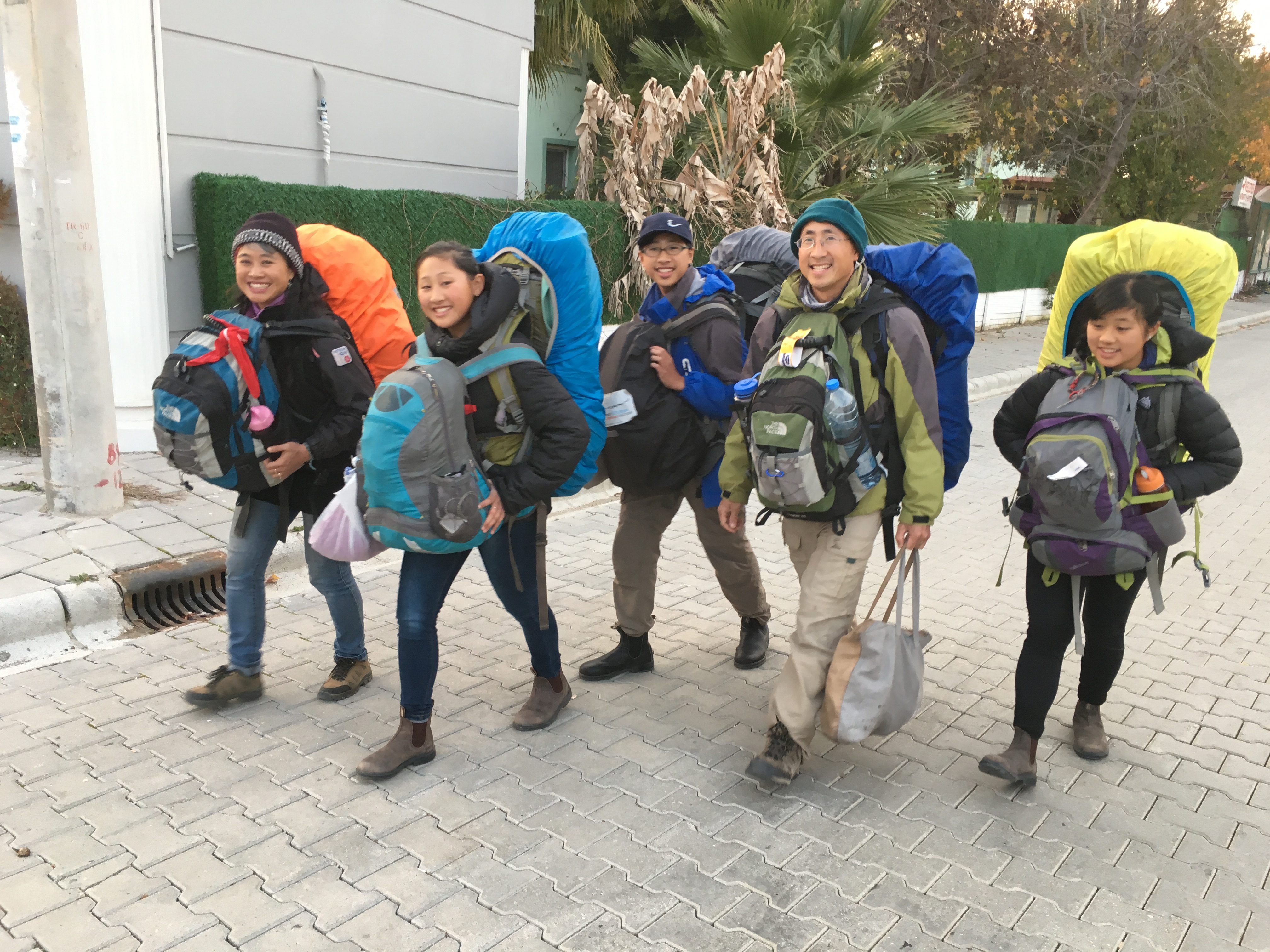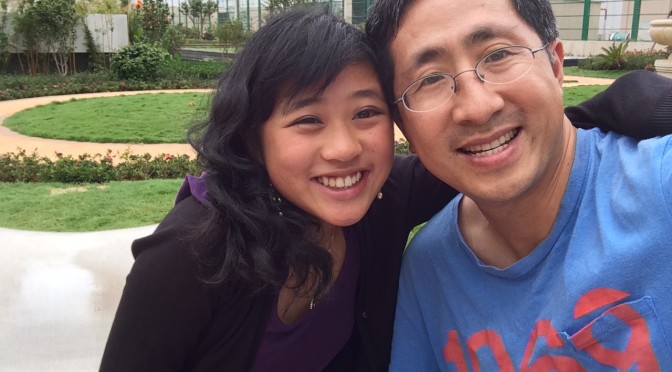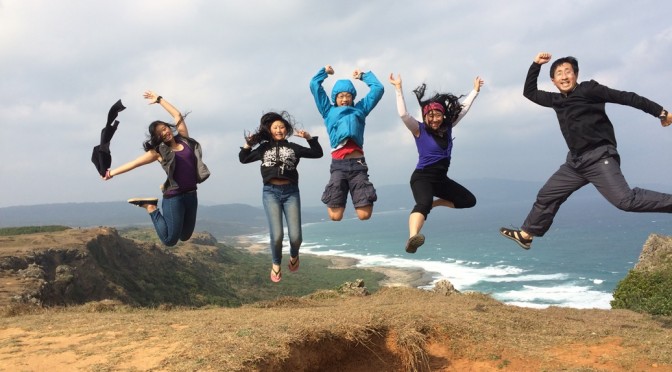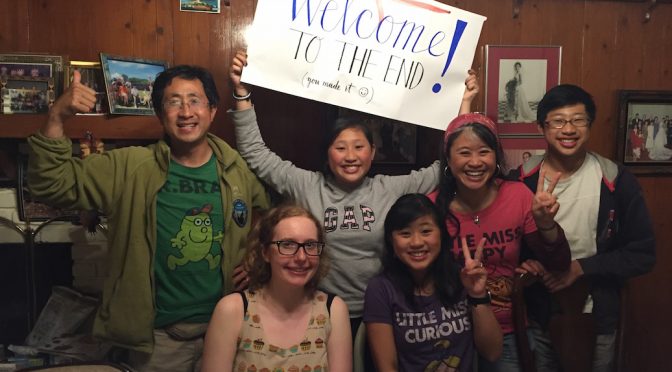
Olivia Su is no stranger to different cultures. After being accepted to the University of British Columbia in 2015, she decided to defer her admission to 2016. For the next twelve months Olivia and her family of five backpacked through Central Asia, Middle East, and Eastern Europe, and wrote about their adventures on their travel blog. Olivia was given the affectionate title of “Team Pioneer” within the Su Family, and since returning to Canada has continued exploring through her academic studies and her co-op experiences in the business world.
In this interview, Olivia talks with Culture Assassins Co-Creator Tim Reitsma about what’s important to her when she considers employment options and the perspectives of her generation on workplace culture.
Welcome Olivia! Let’s start by having you tell us a little bit about yourself!
Sure! Well, I was born in California and spent a lot of my life in China before coming here. I just finished my third year at UBC studying business and specializing in Human Resources. I decided to do HR because I’ve always been a people person.
When I started to think about what I wanted to study I realized that lots of people have to deal with people to do business, but I actually wanted to do business in order to work with people.
I’m currently on my second co-op working with a construction and market development organization on the marketing communications team.
Interesting! Marketing communications is a bit of a departure from HR!
Yeah [laughing], my dad’s like, “You should try other things”, and the truth is that a co-op is only four months and it is a good time to try new things. My first co-op was in Human Resources at the Center for Drug Research and Development. I was involved in recruiting, interviewing, on-boarding and training. From a people perspective the two co-ops have been very different. There are about a hundred people at CDRD and maybe only 20 at my current organization. Both cultures have been very friendly, very nice, very doors open.
You can go and ask anyone a question and they would be willing to help. Being open, however, is different than going out of your way to engage someone.
It’s a very quiet atmosphere at my current organization, which makes it more difficult for someone new like myself to integrate. I’ve been learning more about how to put myself out there by being friendly, asking people questions, and taking people out for coffee. I’ve taken a lot of people out for coffee [laughing] and it’s been cool because I’m not just learning about them and their experiences – I’ve talked about everything from gardening to policies of the Chinese government – but also about the culture of the company.
I’m learning that culture is more than just the fun things and having social events. I think those things are often talked about in terms of culture, but maybe that’s because those are the easy things to change.
They are a big part of the work environment but things like the decision processes and the hierarchy also contribute to the culture.

So you’re saying that culture’s not just about foosball tables and beer on tap?
Yeah [laughing], it’s definitely something more.
Looking ahead, what does that “something more” look like for you after university? What kind of organization and culture would you look for?
I’d look for a place that’s fun but really values people and relationships. I think a place where I would feel comfortable to slow down and ask people how their day is. Somewhere I could have a 15-20 minute conversation and not feel like this is not what I’m supposed to be doing. My dream is to work somewhere that I can become friends with the people I work with.
You work with people eight hours a day, five days a week. That’s such an incredible opportunity to actually know someone and I think it’s a waste to spend years with someone and have nothing come out of that.
I’d love to work with people who value intentionality and who are able to be honest and have conversations about things that go beyond just the day-to-day of talking about things like the latest football game or the weather.
If you think about your classmates at UBC, is your perspective unique or do you think this is what students are looking for in an organization?
I don’t necessarily think I’m unique in the sense that I think this is something all humans are looking for. We’re all looking for relationships.
We’re all looking for belonging and connection, so I’m not and unique in the sense. Everyone in my generation wants that. We want more than just work and stability.
We want what’s called “work-life balance” [laughing]. We want to explore and to be challenged. I’m not sure if people necessarily expect to develop relationships and connection at work, but it’s definitely something that everyone is looking for.
It sounds like you think employers should care about more than just things like educational fit when they hire.
Oh, no, it’s definitely not just educational fit. There are so many people who graduate every year. It’s true what they say, “hire for fit and train for skill”. Regardless of what you think about culture, culture is everywhere. There’s a way that things are being done, a way that things are being communicated, within a family, within a team, within a group project, or within a company.
It’s just important to match people who have the same ambitions and the same direction and vision. I think students today are looking for the culture that matches them. That way you can work together as a team.
It really depends on what kind of culture you want to create. Maybe it’s a very strict culture, like you come in at 8am and you leave at 5pm, not one minute later or earlier. I know people who want to be investment bankers, so they don’t mind putting in the long hours and they’re looking to wear the fancy suits. There are also people who want a good office relationship or a good work-life balance.

What questions would you ask an employer during an interview to assess that alignment?
I might ask, “What is the culture like?” and see what happens! [laughing] I would ask what the team is like, how much team versus individual work there would be, and maybe what the reporting processes are. I’d also want to know about the company’s values and how they play out on a day-to-day basis because I care about things like the community and social impact. Before the interview I would research online and see what their mission statement is, what are their values, and are they giving back to the community.
Do you feel universities are teaching students about culture, values, and purpose as part of teaching business strategy and tactics?
I feel like in business school it’s really easy to lose who you are, or to just not know who you are to begin with. That makes the whole journey through school difficult, but at the same time I think that’s the purpose of school is to figure that out. I think schools teach a lot of the technical stuff and that’s one thing people complain about.
We have one class that’s all about LinkedIn and interviews and resumes, but we are more than our resumes. How do you share that?
I go to the Sauder School of Business at UBC and I think they realize this and are working on it with things like workshops. I also think the students realize this and are actively talking about things like core values, so we’re seeing more of this.
What are your core values?
I really value intentionality, people, and love, and I think all three of those really connect with each other. At my core I’m also a Christian. I am a child of God and because of the love I have received from God, my passion is to love other people and to do this intentionally.
At the core of my life, I love people and building relationships and being able to share the love that I have with other people.
That’s how I like to live my life and what I’ll look for when I go to find a job as well.

Any final thoughts you’d like to offer employers looking to hire students like yourself?
Culture is the lifeblood of a company because you live within that culture eight hours a day, five days a week. It’s important a company knows what it stands for because I think as a student looking for a job we want to know clearly what is the mission and what are the values. It helps with on-boarding new people and produces better efficiency.
I also think culture is a big part of a company’s reputation. For example, I’ve heard Vancity has a really good reputation for its culture, so people want to go there not necessarily because it’s a bank but because it has a good culture.
Personally, I would take a $60K/year job at a company that really embodied my values over a $100K/year one that ran counter to them.
The lower salary is still more than enough for what I need, but I also get to have fun.
Awesome! Any last words?
Yeah, if you want to hire me I’m available! [laughing]
Mike Gibbons
Mike is one of the Co-Founders at Culture Assassins, a Vancouver-based media company dedicated to preventing the destruction of healthy, high-performing organizational cultures, and to providing people with the tools necessary to build them.
Mike is a results-driven and people-oriented business leader with more than 20 years of experience in organizational and team development, marketing and product strategy, business growth strategy, and operations. He has led multiple teams and businesses, locally and globally, most recently as a senior executive for a $100M division of a Fortune 500 company.
Mike is guided by his deeply-held beliefs in connection, curiosity, humour, empathy, and honesty. In addition to his passion for workplace culture and growth, he is an avid skier, mountain biker, and sci-fi fan.

